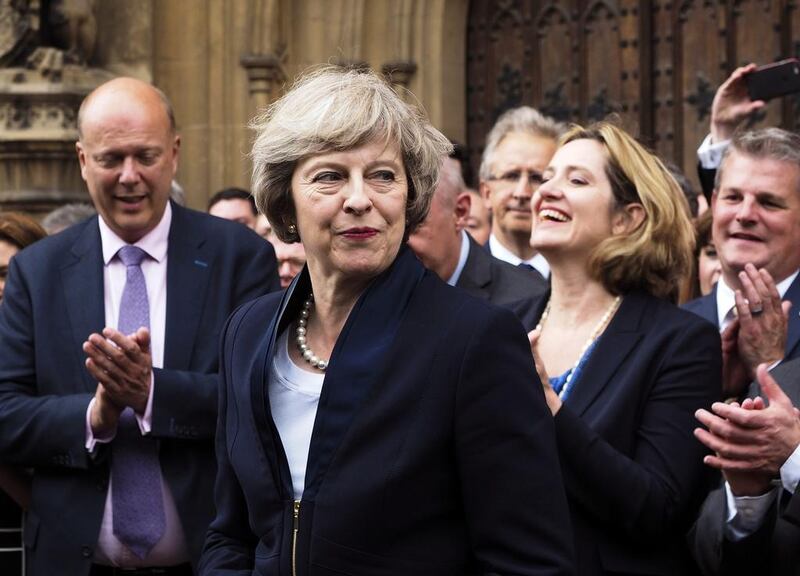As news that Theresa May will be the United Kingdom’s new prime minister by this evening began to sink in in capitals across the world, you could almost hear the scramble for information about her. Mrs May has been the UK’s home secretary, or interior minister, for the past 10 years, but she is barely known outside the UK.
That is chiefly because that portfolio was her first in government – though she had served in opposition for several years – and it is one which does not involve much in the way of dealings with foreign capitals.
What, then, can be inferred about her foreign policy, particularly related to the Middle East? She is certainly firmly in the “hawk” camp of foreign policy. She voted in favour of UK military action against Syria after the Assad regime used chemical weapons in 2013 and again in favour of extending UK air strikes against ISIL from Iraq to Syria two years later.
Indeed, she has voted in favour of every deployment of UK troops abroad this century: Afghanistan, Iraq and Libya. That hawkishness, unfortunately, extends to Palestinians. Mrs May went to Israel two years ago to try to learn how the state tracks and spies on Palestinians.
More broadly, Mrs May, as she negotiates Brexit, is likely to seek free trade deals with growing parts of the world, which will almost certainly mean the Gulf, south Asia and Indonesia. But ministers should beware – Mrs May is known as a formidable negotiator.
She may also have some sympathy with more religious parts of the world. Unusually for the UK, Mrs May is a committed Christian who regularly attends church services and spoke just a few weeks ago about the benefits British people gain from Sharia.
But all that could change. Being prime minister means keeping a close eye on the mood of the country, and she will have noted the anti-immigration feeling behind many of those who voted to leave the European Union. As a “Remainer” herself, she will probably feel she has to prove her credentials.
At the least, Mrs May is likely to have a good opinion of Pakistan. It was that country’s former prime minister Benazir Bhutto who, at university, introduced Mrs May to the man she would marry.





